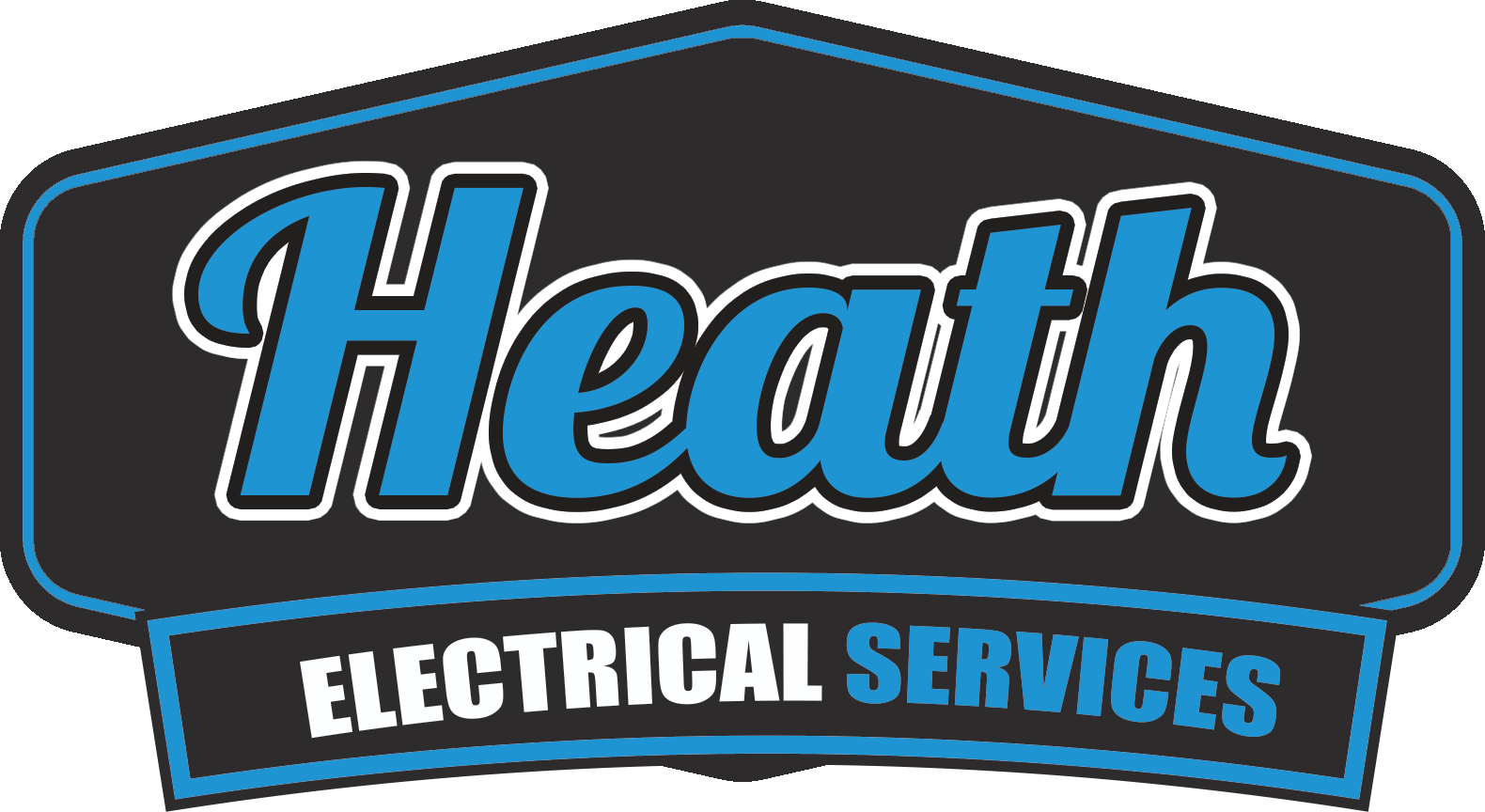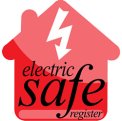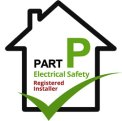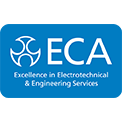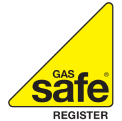In almost every workplace, electricity plays a vital role in whether you’re able to complete your daily job or not. And while every job comes alongside dangers, one, in particular, that is often left unconsidered is those associated with our reliance on electricals. It is for this reason that several regulations have been put in place to prevent the most common electrical hazards in the workplace, keeping employers, staff and visitors safe. Nevertheless, although there are legal precautions in place, it is still vital to ensure that you are aware of these common dangers and how to prevent them, regardless of whether you are the business owner or employee.
Top 6 Common Electrical Hazards In The Workplace
How exposed you are to electrical dangers does depend on the industry that you operate in. For example, the construction sector is by far, the most prone to electrical hazards, whereas an office environment is typically low risk. However, even if your workplace is relatively safe from dangers, it is essential to put in place measures that will keep hazards at a minimum.
As an employer, it is, in fact, your responsibility to carry out a number of tasks to reassure the safety of your workplace. This not only includes ensuring that electrical installations are well maintained but also scheduling regular inspections and repairs wherever necessary. Here at Heath Electrical Services, our electrical contractors in Milton Keynes have many years of experience working with commercial clients. If you are an employer or site manager and are unsure of your responsibilities, they would always be more than happy to walk through these with you. Once work has been completed with our team, we can set up reminders when your next inspection is due, ensuring that you remain up to date with the latest regulations. Feel free to get in touch for more information!
With this in mind, should you be hoping to increase the safety of your workplace, we have put together information on the following common hazards and how to mitigate the risks associated:
- Damaged Equipment
- Exposed Electrical Components
- Overhead Power Lines
- Overloaded Sockets
- Electricals Exposed To Water
- Improper Grounding
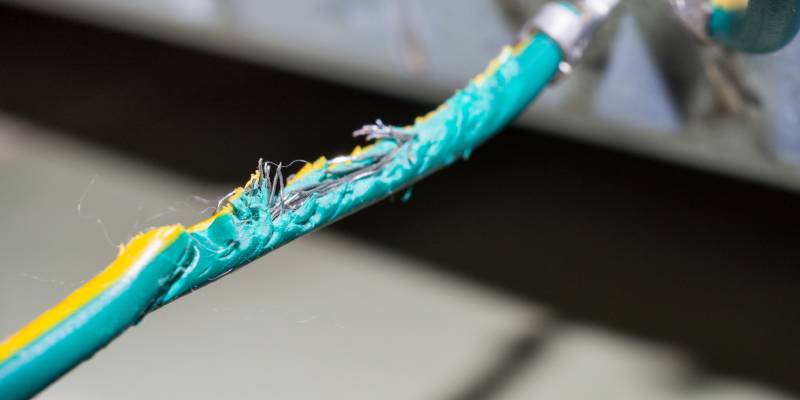
Damaged Equipment
With time and constant wear and tear, it is inevitable that equipment will become damaged. However, instead of attempting to continue using electricals until they stop working altogether, it is essential to invest in a replacement. This is because although the equipment may work well, any damage does pose the risk of an electric shock, burns or even electrocution, which can be potentially life-threatening. Should an employee be harmed by faulty electricals at work, they are within their right to claim against the company, which can lead to significant compensation fees.
To prevent damaged equipment from running any risks, it will be essential to familiarise all staff members with the key signs of faulty electricals. You should also put in place a process to deal with the situation, which for most workplaces, typically involves labelling the equipment as defective then informing a supervisor or line manager. They can then take the next steps to either schedule repairs or invest in a replacement. The most common signs of damaged equipment include the following:
- Circuit breaker trips which cause the electricals to cut off
- Frayed wiring (if you ever notice what appears to be chewed wiring then this is a sign of an infestation)
- Burning smells or an unfamiliar odour coming from the appliance
- Discolouration or scorching on the plug
Although in some cases, problems with equipment are unavoidable, there are ways that you can keep the likelihood of an issue at a minimum, the most beneficial being regular PAT testing. PAT testing can be completed on any piece of equipment that has a plug and is relatively portable and involves the use of a specialist PAT testing machine. The purpose of the inspection is to check whether there is any internal wiring damage, as well as power leakages; both of which cannot be identified otherwise. If you are in need of PAT testing in Milton Keynes or would like more information on the service, please do not hesitate to get in touch with our team.
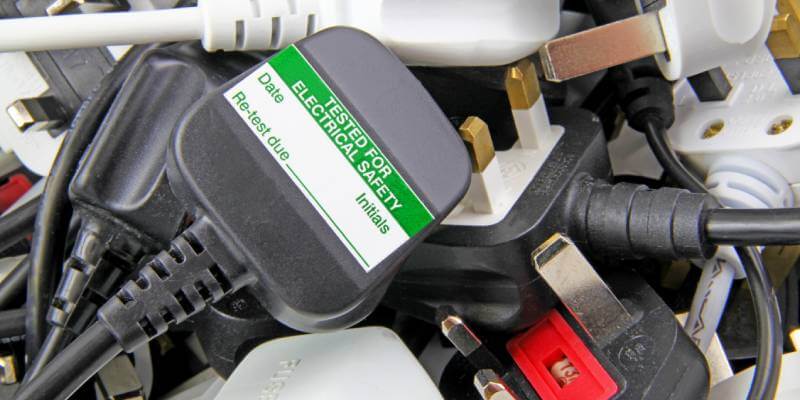
Exposed Electrical Components
Depending on the nature of your workplace, there may be some instances where your premises will have exposed electrical parts; these are mainly found on temporary installations or if the installation is faulty. If this is the case, you should always take extra care to ensure that you do not come into contact with the exposed components as this runs the risk of shock and burns. Should you have a temporary installation such as lighting, then it will be essential to put a notice nearby to the appliance to inform others of the danger. For a faulty installation, on the other hand, be sure to put a guard around the exposed components to ensure that it is protected until you are able to schedule repairs.
Overhead Power Lines
Now, although this hazard applies primarily to those in the construction industry who work outdoors, it is by far one of the most dangerous, so it is vital to keep in mind at all times. Should you be carrying out a project with overhead power lines, it is strongly recommended always to stay at least ten feet at a minimum away from the lines. Power lines carry one of the highest voltage, which means that should anyone come into contact with them, there is a significant risk of not only electrocution but also severe burns.
As well as ensuring that individuals steer clear from power lines, any equipment that you are using should also remain at a distance. This includes not only power tools but also access equipment such as scaffold towers and cranes. You can find tonnes of information about how to remain safe while working nearby to a power line on the HSE website.
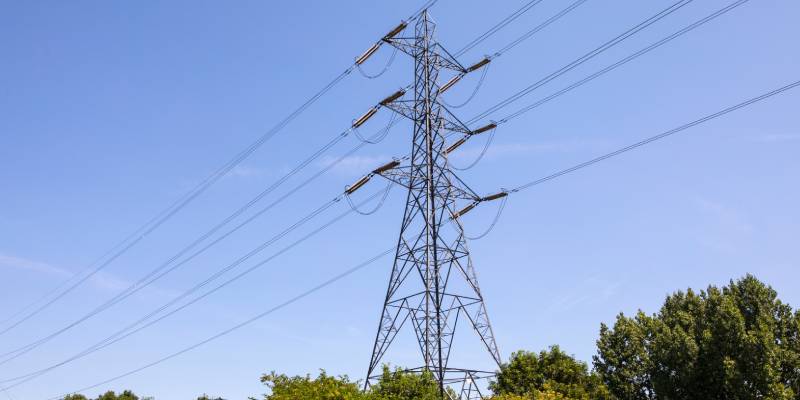
Overloaded Sockets
Particularly when it comes to an office environment, there are tonnes of different types of electrical equipment that is required on a daily basis, whether this may be computers, printer or any other devices. This means that it isn’t uncommon for a plug socket to be the source of power for multiple electricals, as well as adapters and extension leads. Although your plug sockets may not have encountered any problems in the past, it is likely that at some point, they will overload, which can prove dangerous. An overloaded socket is a fire hazard as the extra strain on the outlets to provide power to several different devices can cause it to overheat.
There are many visible signs that your power socket is starting to overheat with the most common being the smell of burning, sparks when you plug or unplug an appliance, as well as scorch marks. Should you spot any of these warning signs, it will be vital to stop using the power socket immediately and enlist a certified electrician to assess the condition of the outlet. They will then be able to schedule a replacement and advise you on how to prevent the problem from reoccurring. Ideally, each power socket should only be responsible for providing electricity to a single piece of equipment. If this means that you will no longer have enough power outlets for your workplace, it is possible for more to be added with the help of a certified commercial electrician.
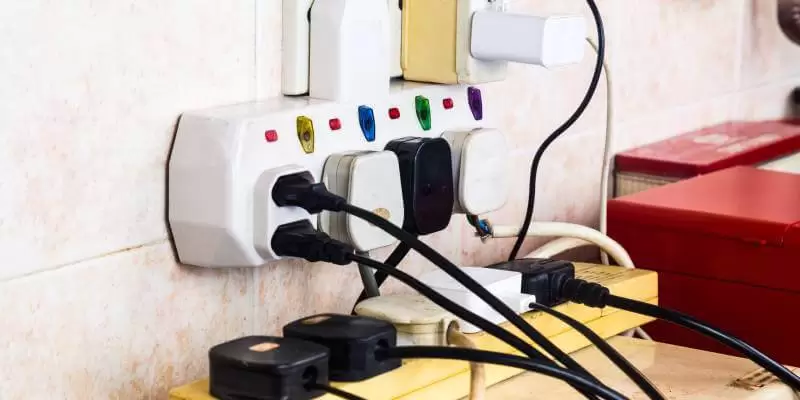
Electricals Exposed To Water
You would be surprised how easy it is for electrical outlets to come into contact with water, yet it can be one of the most dangerous hazards. Water is an excellent conductor of electricity, which means that should you touch an outlet with wet hands, for example, the electricity will travel through the water, through you and then to the ground causing an electric shock. Although it may sound obvious, now more than ever we are washing our hands regularly, so be sure to provide plenty of hand towels to prevent the risk of a water-related danger in the workplace.
In other instances, your job role may mean that operating electrical equipment in wet condition is necessary, such as in the construction industry. If this is the case, then it is vital to keep in mind that this is only safe if you have had adequate training and are provided with personal protective equipment.
Improper Grounding
All electrical installations, regardless of whether you are at home or in the workplace, must be grounded, which is otherwise known as earthing. In grounding appliances, it means that any excess electricity is able to track down the most effective route to return to the ground without posing any safety risks. This is typically used in the event of a faulty wiring system and ultimately, offers a backup plan to prevent any electrical dangers.
However, if your installations have not been properly grounded, then this backup pathway is no longer there, and you are exposed to the full force of an electrical current that has nowhere else to go but towards you. There are certain areas which are more susceptible to improper grounding, and this is generally built-up areas and large cities. This is because the more people that are living and working within the area, the more of a demand there will be for electricity; therefore, more dangers. You can find more information on grounding on The Spruce, and while this article relates to household wiring, the concept is the same for the workplace.
If you are worried that there are any problems with your installations, then our electricians are fully qualified in cabling and wiring in Milton Keynes. They will be able to assess whether you have adequate grounding then recommend whether any remedial work is necessary to ensure the safety of your workplace.
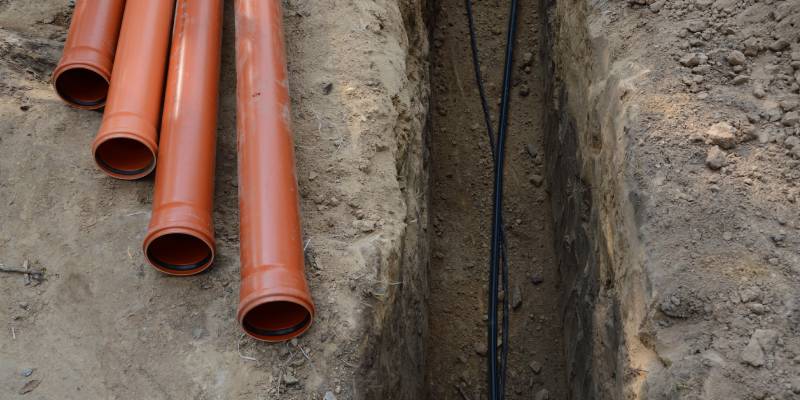
Stay Safe From Electrical Hazards
Although every workplace comes alongside its own dangers, electrical hazards can be found regardless of the industry that you operate in. It is for this reason that not only should preventative measures be put in place, but your staff should also be briefed on how to spot and act on any potential dangers that they encounter. Your safety processes should involve many factors with the most prominent being regular electrician assessments with a certified local electrician. Our commercial electricians in Milton Keynes have many years of experiences working with businesses to protect their workplace from hazards and offer all necessary electrical work under one roof. You can find more information on these over on our commercial services page or to speak with a qualified electrician, head over to our contact page!
